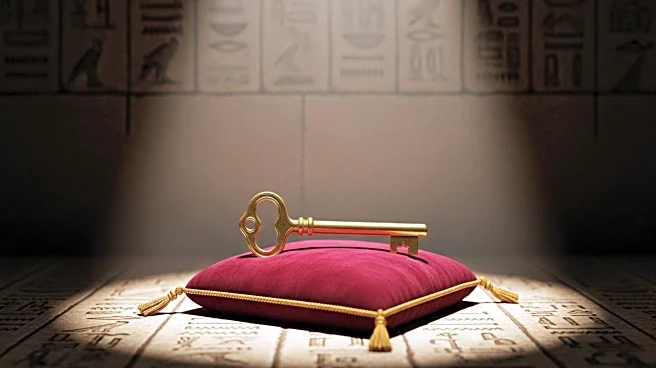What's Happening?
Egyptian President Abdel Fattah el-Sisi has pardoned Alaa Abd El Fattah, a well-known political prisoner, along with several other detainees. Abd El Fattah, who has been imprisoned for most of the last 12 years, was initially expected to be released last September after completing a five-year sentence. However, authorities extended his detention, citing pretrial periods. The presidential statement emphasized the government's commitment to human rights and tolerance, offering those pardoned a chance to start anew.
Why It's Important?
The pardon of Alaa Abd El Fattah is a significant development in Egypt's human rights landscape. Abd El Fattah's case has drawn international attention, with numerous human rights organizations advocating for his release. This decision may signal a shift in Egypt's approach to political dissent and human rights, potentially improving its international standing. The move could also impact domestic politics, influencing public perception of the government's commitment to reform and human rights.
What's Next?
The release of Abd El Fattah and other political prisoners may lead to increased dialogue on human rights in Egypt. International observers and human rights groups will likely monitor the situation closely, assessing the government's actions and future commitments. The pardons could pave the way for further reforms, potentially affecting Egypt's relations with Western countries and international organizations focused on human rights.









